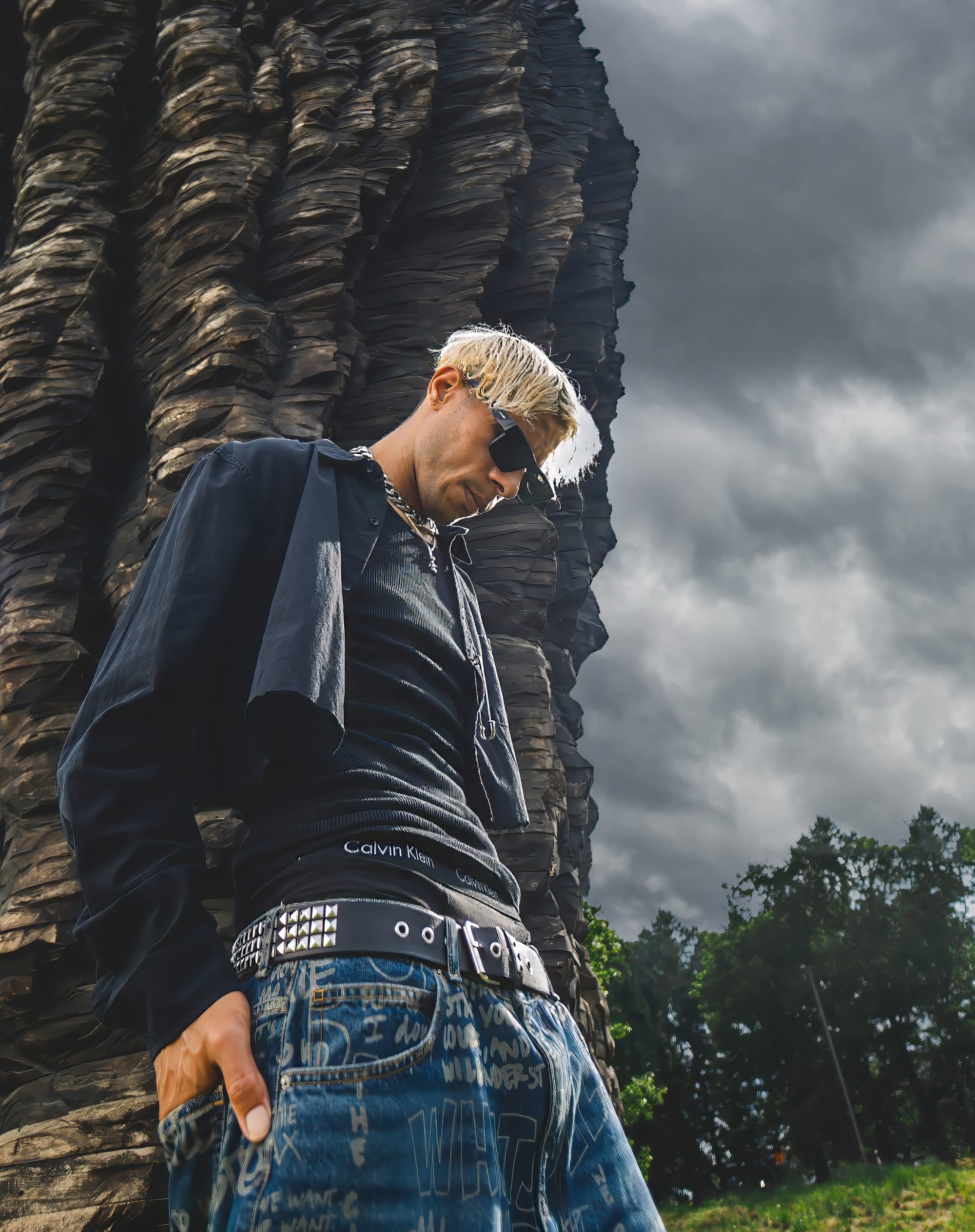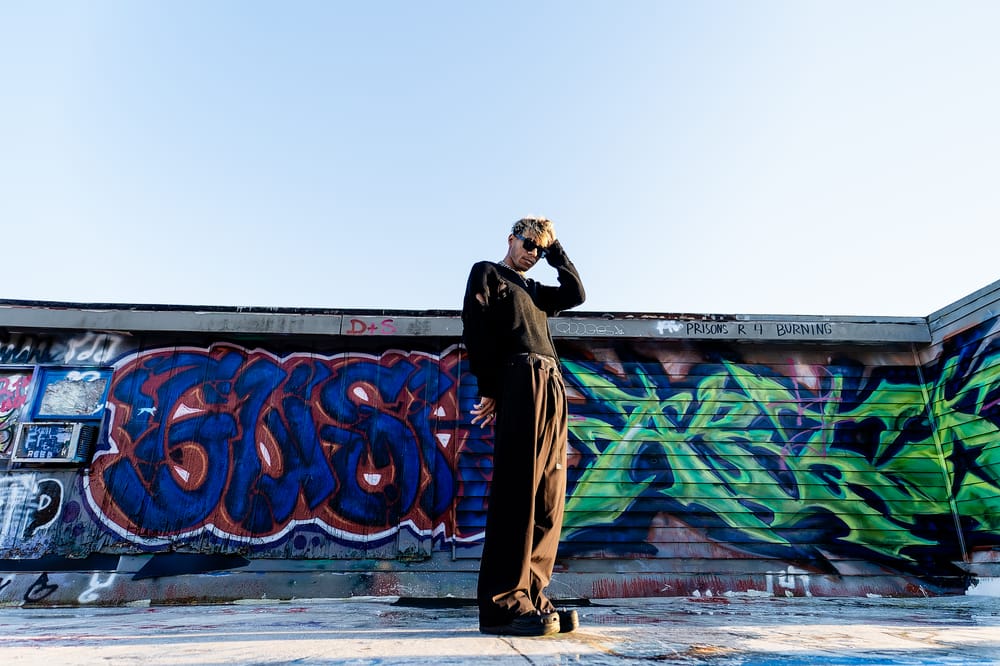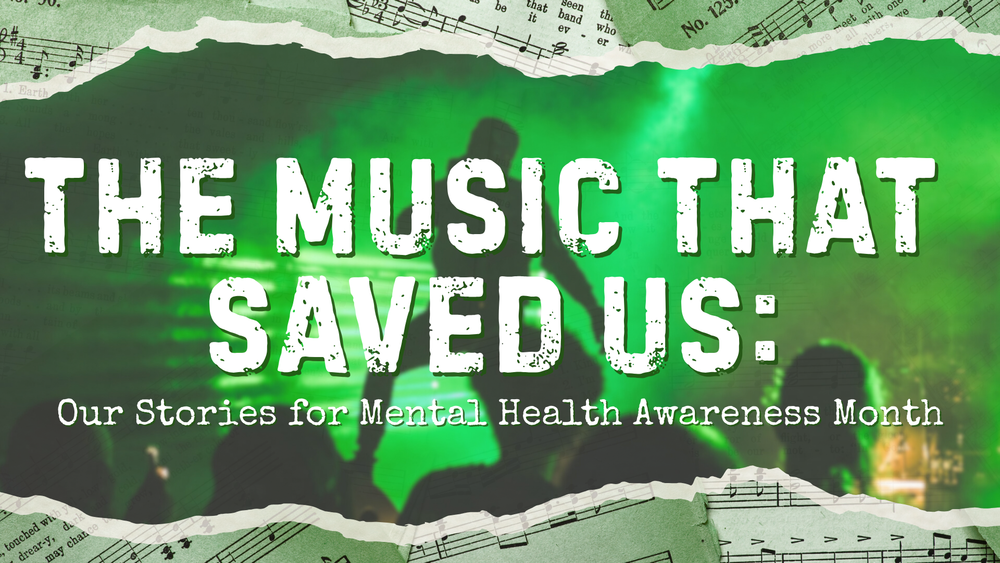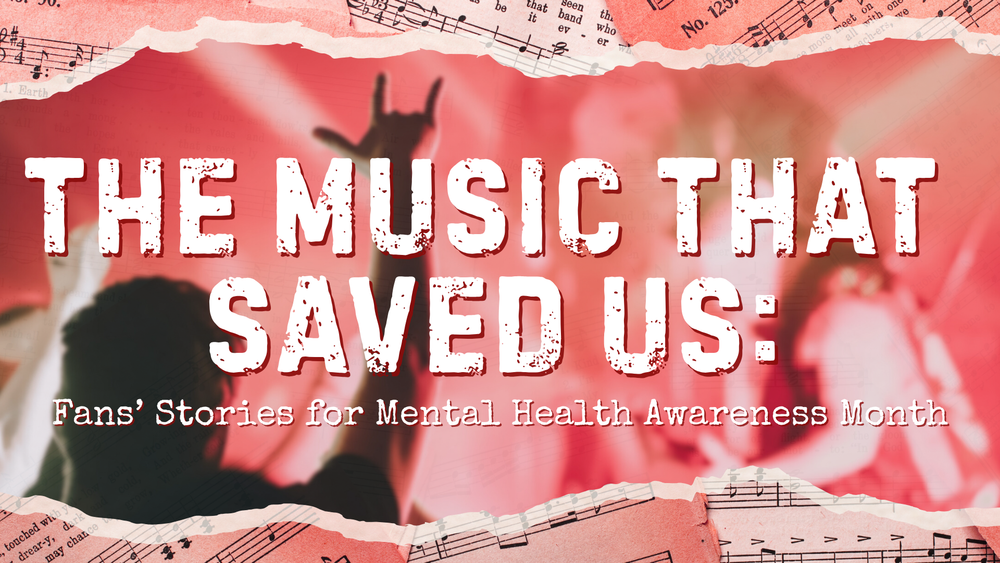The music industry is often seen as a “dream job”: making music, playing shows, gaining fans — and maybe even making some money along the way. But, beneath the surface, it can be mentally and emotionally exhausting. From the constant pressure to stay relevant to the the loneliness of life on the road, the toll it all takes on an artist isn’t something that’s often talked about. In this exclusive interview, TITUS opens up about the realities of mental health in the industry, how he stays grounded in the chaos, and why being vulnerable is more important than ever.
MSM: Being in the music industry can take a serious toll emotionally between touring, pressure to stay relevant, and the nonstop grind. What has your experience been like managing your mental health through all of that?
TITUS: I think that with being a creative in general, most people experience a lot of highs and a lot of lows. And sometimes those can be polarizing. The highs can be so high— the thrill and adrenaline of releasing something. So, I guess, either vulnerable or exciting to you, but the world can feel like pure bliss at times. And the downside is, you can really set yourself up for being let down or subjecting yourself to the same amount of harsh criticism when you are vulnerable. So the lows can feel really, really, really low at times if you're not emotionally healthy on some level and if you don't pay attention to it in the same way that you would pay attention to your physical health.
Was there a moment when you realized you needed to prioritize your mental wellbeing, even if it meant stepping back from the hustle a bit?
Yes. I think there was definitely a moment. I would say it was a window of time where I had been focusing on music for so long and I reached the peak amount of focus and determination I was putting towards both the creative side and the business side of music. And then I had lost my mom to cancer pretty quickly, and at first I was in shock and didn't allow myself enough time to grieve, and I immediately sank myself into expressing myself through music. The only thing I knew how to do, the only form, at least, I knew how to express the pain that I had been going through. So, I did a tour, and then I put out more music, and then a project, and then another tour after that. And I think after that second one, I was really, really sad, and I didn't know why.
Well, I knew why, but there were so many other contributing factors to that sadness, and it became almost a functional depression because I had kept how I was feeling relatively compartmentalized inside of me just in some form of trying to control the amount of grief I was going through. And I really started to spiral because I had been neglecting a lot of the relationships in my life, and it caused a huge self-reflection period. And I felt like I was, on some level, so dedicated to sharing my art and my experience with people that I hadn't really given myself a chance to enjoy myself. And so I came to that conclusion after stepping away from music and self-reflecting and doing some other things along the way that were other versions of coping with grief. And that's like moving and changing drastic things in my life. But in the end, I think if you like something enough, you find a way to protect it. And in this case, I'm protecting these things equally now instead of disproportionately.
"fucked up, it's got to get better..."
Yeah, because I'm sure releasing music and creating is a therapy in itself if you balance it well, right?
Yeah, and that's interesting because that was something I told myself for a long time. Like, oh, this music is my therapy. It's a way for me to talk about things that I, for some reason, struggle talking about with people in my life or professionals, but for some reason it's somehow easier for me to say it in a song when it's shrouded in poetry on top of a melody that I love. And I just became so used to that method that I wasn't actually diversifying this means of medicine that I had prescribed myself. It was just only this thing, and yeah...
I just didn't want to look at my trauma as a song rollout for a little bit.
I'd become so turned off by the "productification," if that's a word, of what was a very real thing to me. Everyone says, Oh, this is therapy for me. And for some people it is, and for some people it's a witty tagline that sounds hipster and cool, but for me, I mean, you can go through my discography and see that I've been talking about the general state of affairs of my mental state and the history, even outside of the rock project, for a very long time, and it kind of all came to a screeching halt when I think one of the most devastating things that can happen happened. It's kind of one of those things where you just break everything down, and you stop everything for a minute, and you try to figure out where to rebuild.
Like a reset?
Yeah, I think because on some level we are people, and so I think a lot of young artists and creators forget that the most important thing isn't always your ego. It's not always about how you look and what you're coming off as. And, sometimes, it's just important to be a human being.
And people forget that everything isn't just about content, about what they're doing, about where they are, who they're with, how many numbers they have, what's the cap size of their tour, or what kind of artist can they call in their phone.
It just becomes something so different and so foreign to me that it became nasty to me at a point. I was disgusted even talking about the industry at all. I really just didn't want anything to do with it. After a while, I was just like, yeah, I've seen enough at this point.
And I never craved success, in a conventional way, at any point. And that's so off-putting to people, and they'll be like, oh, well, it's because maybe you never reached it or you never got a real taste of it. It's like I never at any point was trying to be a musician as some form of "look at me" contest. I always genuinely enjoyed making music, and it was cool to be able to see the world, on some level, doing that because that was another huge passion of mine. When I was 12, all I wanted to do was leave my small town and everybody that I was trapped with, and I did. I feel like on some level I was fulfilled, and on some level, the deeper and deeper I got into the music industry, behind the scenes, especially the more ugly I saw, the more insecure people I saw, the more greed I saw, the more attention to literally everything besides the actual art. And I understand that most industries are that way, I'm not naive to that, but just when you experience something like that firsthand, it's like, I'll summarize this with one sentence, and that's never meet your idols. And music, and the music business, to me was an idol of mine for so long, and I just, on some level, I did it in many different forms and I look at it very differently. And now, I am just doing things purely for the sake of doing them again.
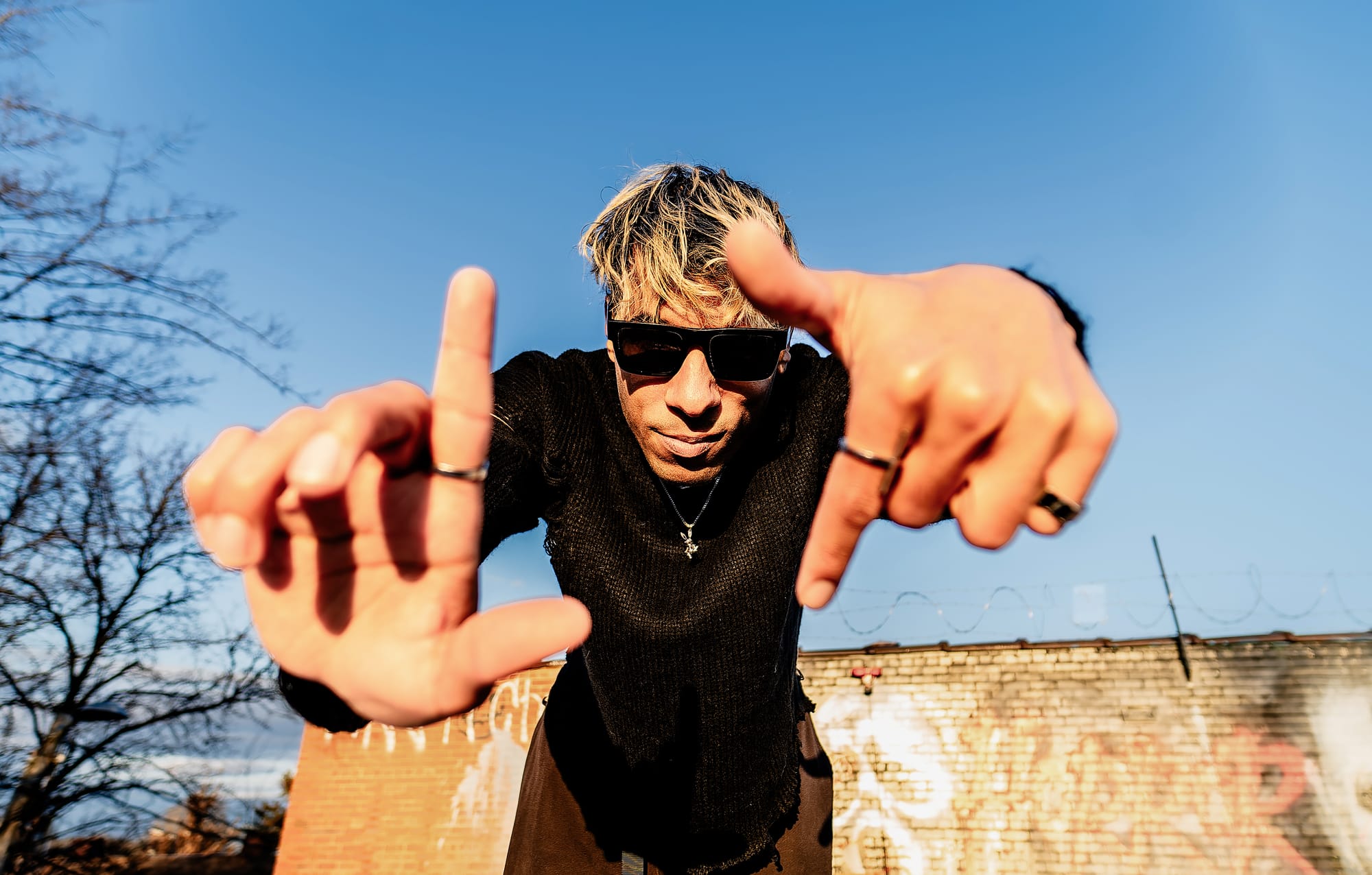
Yeah. So, touring looks like a dream from the outside, but I'm sure that can be an isolating experience, too. How do you cope with something like that when you've been on tour? Like, how do you cope with a chaotic schedule and being away from your home?
I think you keep good company. I know that that's not an easy thing to control sometimes, as your budget will dictate that on some level, and your scarcity of talent sometimes will dictate that, but it helps when you're with people that you can laugh and joke with and just spend downtime with because there's a lot of downtime. So, for that 12 hours every day that you're in a vehicle, you have to be able to enjoy it or otherwise just feels like you're on hold forever. That one day of a show can be one long day from load in to when you're done loading out. It's like, it's all over so quickly because your adrenalines going. But yeah, I'd say keeping good company is definitely one of those ways. Another way is don't be afraid to throw yourself into the travel of it. So many people I feel like just are just focused on each show, especially if it's your first tour. My first one, I was amazed because I had never seen the center of the country, the states in the middle, there's just so much land out there. There's just so much different types of landscape and it just was gorgeous to me, every single part of it. I love stopping at random gas stations and rest stops buying little tchotchkes and things that you would always look at in your own town and be like, who's buying this shit? That's me. I'm buying that shit in your city.
What are other things that help keep you grounded in your time off or from music itself?
Definitely my friends and my soon-to-be wife. Having a good support system. When you spend a lot of time obsessing about content, and creating and releasing things, you can become that to someone. Even people you know can just become that artist. And sometimes it's nice to just be like me and just not talk about anything related to anything I'm doing currently. I feel like I shy away from those moments anyway. But yeah, it's nice to have a good support system and people that you can laugh with about shit that has nothing to do with you. For me, that's my dogs and my, well I'll just say wife, and my friends. We laugh about shit from when we were younger — like shit that's going on in pop culture, beefs, whatever dumb shit is on TV. Also, I'm still pretty active, so I do a lot of hiking, I try to bike ride, I still skate a lot when it's not 150 degrees. And I'm not trying to die so I'm not doing that as much, so breaking bones and things are not in my near future. But I have other forms of expression, too, as you know, I like to video edit and I do like photography a lot, and sometimes I'll just walk around, take different pictures like my little Polaroid or my Sony Handycam or whatever, and do little edits. Just any ways to express myself, really.
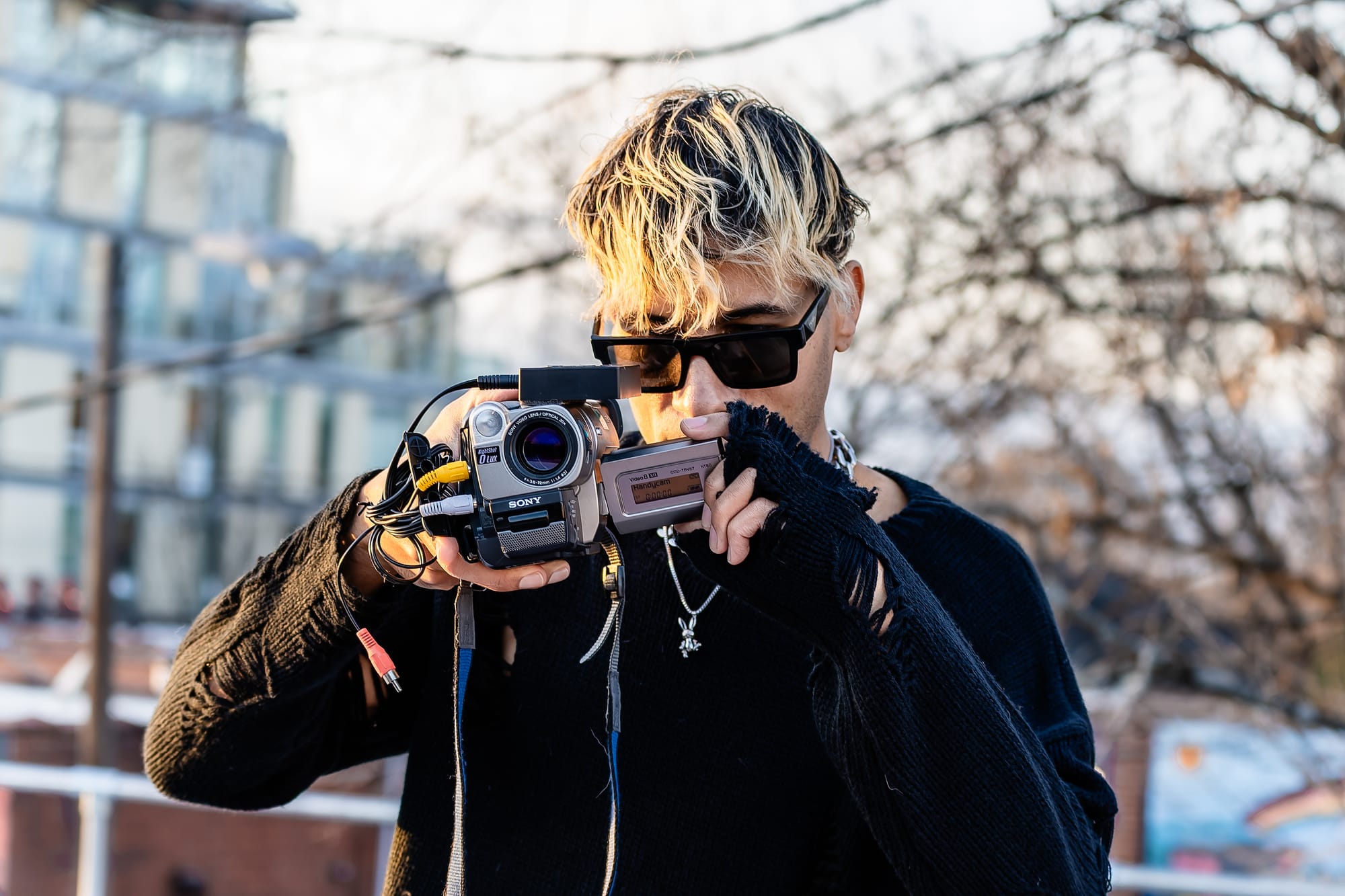
Do you feel like there's mental health support in the industry itself?
No. It's hard. No is my gut reaction. If you asked me if I feel like there's enough produce in the supermarket, obviously I would say yes because there's a 99% chance that the grocery store I'm in has produce. That's just based on my experience. I don't see where. I'm sure they exist, don't get me wrong, but I don't personally see them readily available in places for you to stumble into. Because some people, and I'm sure a lot of people can relate, but sometimes when you need help, it's not easy to find it. You feel very isolated and you don't go looking for it if you self-sabotage or you're just someone that dissociates. I don't, in my personal experience, feel like I've stumbled into mental health assistance anywhere.
Do you ever hesitate to be open about your struggles in your music, or do you think that honesty is what makes you you?
I think it's a balance of both, because the honesty thing is certainly the way that I communicate on songs, but I do understand that not everything that is super, super specific to you is understandable to other people without context, and sometimes the message can be lost entirely. And so, there are times where you need to draw more general experiences in with your very specific experience in order to reach more people, if that's your goal.
So, "Love Myself" would be an example of that. It was a very raw song that I did that I started and wrote. They were just verses when I wrote that song. And I said a lot of things that I had been thinking, sort of, but not acknowledging, just about how I would grow up and compare my family to my friends' families who seemed so normal and perfect, and I was experiencing some level of dysfunction. I feel like I didn't fairly get assigned when I was born into this world. And I'm sure people related to that because no one's perfect, but you can feel like everyone else is perfect when you're going through it.
"I don't believe fairy tales were meant for me... looking at your perfect family house and wondering why mine never figured it out..."
And that comes back to, I guess people just being afraid to show their imperfections. You go on Instagram and you see the highlight of everyone's day, the most lit part of everyone's night, and what you're not seeing is them crying because their dad's an alcoholic or something like that. And it can feel like when you consume that content all day that your life is so much worse in comparison to these people that seem to have everything. And the truth is that the human experience is not that. So yeah, I've deviated from the original question, but these are my thoughts.
Why do you think it's important for artists to speak openly about mental health?
For that exact reason, you feel like you are broken if no one else is talking about them being broken. But we're broken. It's we, not I. So, the more people that talk about it and are open about it, even if one other person is affected by it, it's worth it.
Because, again, you don't stumble into mental health resources every day. And most people can't afford therapy and things like that. A lot of people don't have healthcare or even know where to start. So yeah, we'll see how good AI gets with that pretty soon.
Have you ever had fans reach out to you to say that your honesty had helped them through something?
Yeah, that's actually one of the most rewarding, if not the most rewarding thing about it at all, about having to turn my music into some form of artistry that has to function like a normal artist that has a business behind it. I really truthfully enjoy reading DM's. For example, I got an email while I was on hiatus, which was really just a mental health break, but it was asking where I was and if I was okay, and I responded because I was so touched by that. I was like, the fact this person was thinking about me enough to email...I mean, he probably sent a DM that I didn't see because I was off of social media, but to find my email and send me that really meant so much to me. I actually was so happy when I read that and I like to see that other people care about their journey. It's not enough to be upset and to realize that things are fucked up, but if you're at least taking steps to become more whole then you're in a good direction.
What would you say to fans, or even other musicians, who are struggling and don't feel like they can talk about it?
I would say just rip the bandaid off. It's kind of like going into a pool, even when you're sweating, for some reason it's torture. If you walk in it from ankle up to knee, up to hip to the waist, just jump. Because after you do it, you'll be like, oh, thank God. The first thing you'll see is that you made it such so much more of a big deal than everyone else did, in your head, and you probably piled on the anxiety and everyone else was just like, oh yeah, dude, I feel you. That shit is fucked up over here. Let me come over here. Let's talk about it. That was the best thing for me because even when my mom passed and I was grieving, and I had done this song that I wrote for her while she was sick, I was performing that song as some kind of, I guess, tribute to her for me. And I talked to so many people at the merch table every night that I didn't even care about selling t-shirts at that point because I was getting the application from just talking to people. That was enough for me.
Just hearing people's stories and how they related and just kind of bouncing ideas off each other and it was like therapy for me. It really was on some level, and I'm really appreciative of that. So, I would say, just get it out there.
Solitude is no place for the hurt.
